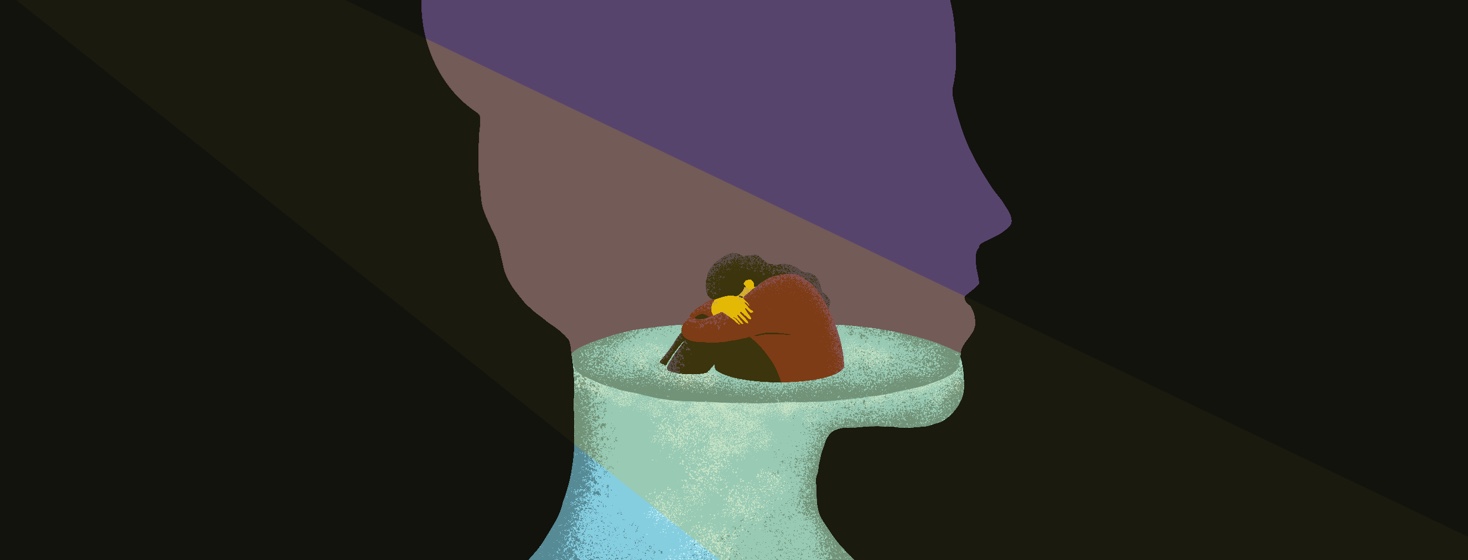When Numbing Turns to Drowning: How Opioids Amplified My Trauma Instead of Healing It
Editor's Note: This article discusses overdose and its impacts, which may be distressing for some readers. If you need support, please reach out to a person you trust or crisis resource. You can also get help here.
People think addiction to opioids starts with a choice, but for me, it started with grief.
A life of loss
Long before I ever swallowed a pill, I had already lost more than I knew how to live with. My sister Niki, my best friend and my safe place, died of a drug overdose when I was still a teenager.
Her death shattered something in me. It left behind a silence I didn’t have the tools to fill, and a sadness too big for my young heart to understand.
Years later, I met my husband John while serving in the U.S. Air Force. For the first time in years, I felt like life was giving me a second chance. We got married in Japan, started a family, and moved to Joint Base Andrews in Maryland.
Eight months after giving birth to our son, I became a widow. John died in an on-base accident, and everything I’d just begun to rebuild came crashing down again.
I was 23. A young mother. A young widow. And utterly broken.
It started with a pill
When the doctors handed me that first prescription, it was just “something to take the edge off”. I wasn’t looking to escape—I was looking to survive. I was desperate to soften the pain, quiet the noise, and sleep without seeing the moment John was taken from me replaying over and over in my head.
At first, opioids felt like relief, but they didn’t take away the pain or grief. They trapped it beneath shame, silence, and growing addiction.
Every time I used opioids, I thought I was numbing the grief, but all I was doing was feeding it. I became less present with my son. I isolated myself from friends. I stopped asking for help. I told myself I was functioning—but behind closed doors, I was spiraling.
Just like my sister
One day, I took too many pills on an empty stomach and threw them up. I was furious. Desperate. Then something strange happened: I thought of my sister.
I remembered a day, years earlier, when I’d been riding in the car with her. She had to pull over to throw up after taking a large dose of pills—way more than I understood back then. Her tolerance was so high, it didn’t even faze her.
I watched her get angry. Not because she was sick, but because she’d “wasted” them. She dug through her own vomit, grabbed the ones still intact, and swallowed them again.
I was horrified. I didn’t understand addiction yet, but I knew something was deeply wrong. I remember thinking, This isn’t normal. This can’t be okay.
Years later, I became the mirror.
Realizing I needed help
That day on the bathroom floor, I did the exact same thing, and something inside me cracked. I realized I wasn’t just grieving or coping anymore. I was collapsing. The very thing I hadn’t understood in my sister now lived in my own body.
I sat there shaking, crying, and whispering to myself, "I need help. This isn’t normal. I can’t keep doing this."
But recovery doesn’t usually begin with a clean break. It begins with a thousand small, brutal decisions. Choosing to face the pain instead of run from it. Choosing to feel what the pills were trying to erase.
My grief became a monster
Opioid addiction didn’t just numb my trauma. It amplified it. It hijacked my ability to function. It made me lie. It made me hide. It took everything I was already carrying—grief, shame, heartbreak—and added more weight to it.
My memories and my use became triggers. But eventually, I realized the real problem wasn’t just the trauma—it was what I kept doing to avoid feeling it.
When relief becomes drowning
That’s what opioid use disorder does. It starts out like relief. Then it rewires everything. You’re not chasing a high—you’re avoiding the withdrawal. You’re chasing normal. Chasing quiet. Chasing anything that doesn’t feel like drowning.
And for a while, it works. Until it doesn’t.
Until your body needs more. Until you’re lying to people you love. Until you don’t recognize yourself in the mirror, and you’re picking pills out of your own vomit, thinking, "This is insane, but I still have to do it."
That’s addiction.
Addiction is not weakness, it's a disease
It’s not about willpower. It’s not about weakness. It’s a disease. And it hijacks everything—your mind, your relationships, your sense of self. But here’s the part people don’t talk about enough: You can come back from it.
Not overnight. Not easily. But slowly, with help, honesty, and support—you can start to pull yourself out.
That’s what I did.
Spreading awareness through telling my story
I’m still in recovery—still learning how to live without numbing everything. Still finding better ways to carry the pain instead of letting it bury me.
Today, I speak openly about addiction—not because I’m proud of what I went through, but because I know how many people are still going through it.
And if that’s you—if you’re using just to get through the day—I get it.
But you deserve more than survival. And there’s a way out. I’m proof of that.


Join the conversation